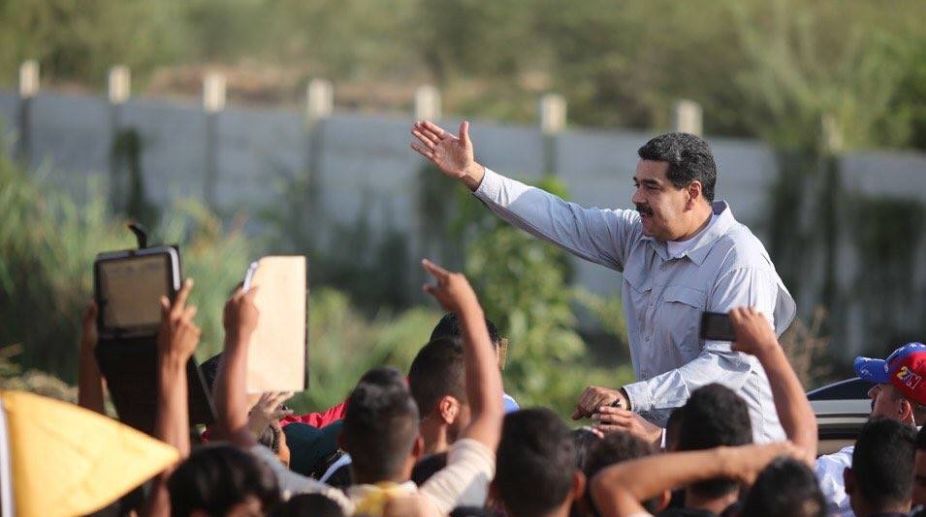Dictator’s template
A few decades back, a decreasing number of countries were given taints of autocracies and dictatorship (even though many were under undemocratic monarchies).

Nicolas Maduro (FACEBOOK)
Things fall apart; the centre cannot hold. That quote from WB Yeats’ poem, “The Second Coming” has turned out to be painfully apt in Venezuela. Its President, Nicolas Maduro, has failed his country, and the decision of protestors to hold a “national sit-in against the dictatorship” is but a symptom of the canker that has permeated the system. This is as symptomatic as the shutdown in the capital of Caracas. It would be an understatement to contend that the country is in crisis for Venezuela is teetering on the brink. Handpicked by his predecessor, Hugo Chavez, just before his death in 2013, Maduro’s performance has been nothing short of a disaster, most particularly in terms of grappling with the economic crisis consequent to the fall in oil prices.
Chavismo, Chavez’ flagship experiment in poverty alleviation and social ownership, is virtually in tatters. A tragic denouement for a country that was once South America’s richest. Inflation has ballooned to an almost incredible 800 per cent and at least four families out of five are in dire poverty. Seldom in the history of South America has the human condition been so devastatingly undermined. Babies are dying for want of medicines. And as often happens in conditions of endemic privation, there has been a frightful spurt in murders and kidnappings. The quality of life, in a word, is strained as must be the certitudes of democracy. As his grip on power falters, President Maduro betrays an urgent desperation to cling onto power. Protests across the nation have been greeted with reprisals unleashed by semi-official vigilantes. As stalemate convulses the country, fears that the violence could spiral beyond control are dangerously real.
Advertisement
The revolution has been reduced to a fizzle as Venezuelans contend with the rule of the elite, indeed a segment that cares little about alleviating poverty, let alone sharing wealth. It is significant that the demonstrators include people from the poorer parts of Caracas, verily those who were once participants in the Chavismo project. Maduro has indicated that he is willing to resume talks ~ brokered by the Vatican ~ with the opposition. Even if the Papacy mediates, there is considerable cynicism over the overtures from a beleaguered President.
Advertisement
The feelers from Maduro have failed to inspire confidence; the earlier intervention of the Vatican had yielded little because of the President’s refusal to relent. It is open to question whether fresh elections, as demanded by the people, will be able to defuse the crisis. Maduro’s failure to govern has overshadowed the crippling economic blight. Yet protest per se is unlikely to force Maduro to step down. As Oliver Cromwell once told England’s Rump parliament ~ “You have sat too long for any good you have been doing lately. In the name of God, go”.
Advertisement